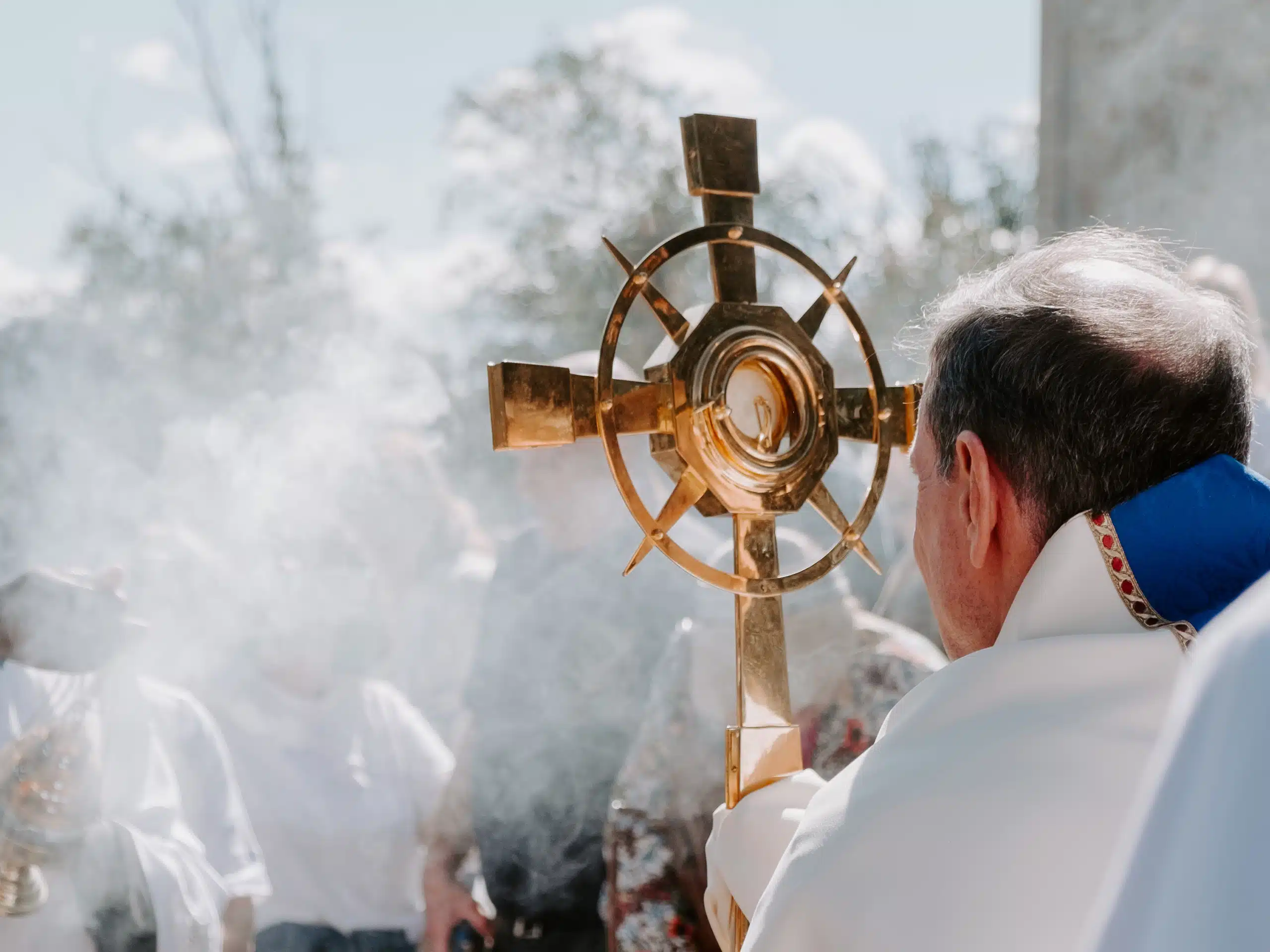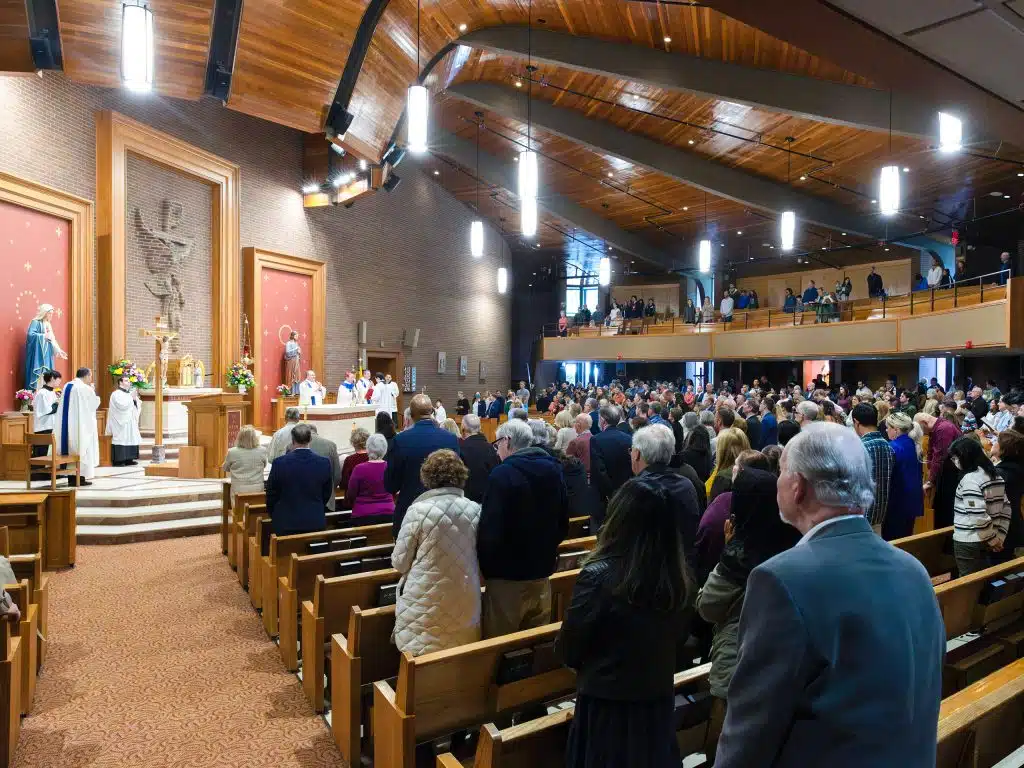Especially during this moment of the National Eucharistic Revival throughout the United States, the approach of Holy Thursday, March 28, is a welcome catalyst for further meditation on the glorious mystery of the Most Blessed Sacrament.
Jesus Christ gave to us his body and blood under the appearances of bread and wine. The magisterium, also known as the church’s teaching authority, has never wavered when declaring the real presence of Christ in the Eucharist.
With chronic, disturbing reports of most Catholics not attending Mass on Sundays and holy days of obligation and even not believing as the church definitively defines about the Holy Eucharist, it is increasingly crucial that the truth about the body and blood of Christ is always and everywhere made known.
In his remarkable work, “The Hidden Manna: A Theology of the Eucharist” (San Francisco: Ignatius Press, 2005), the late Msgr. James T. O’Connor, identifying a less known “fruit” of our affection for the Blessed Sacrament, quoted an encouraging letter from J.R.R. Tolkien to his son about marriage. The famous English writer and philologist cited the support to be found in the Holy Eucharist for our friendships with others.
“Out of the darkness of my life, so much frustrated, I put before you the one great thing to love on earth: the Blessed Sacrament. … There you will find romance, glory, honor, fidelity, and the true way of all your loves on earth, and more than that: death: by the divine paradox, that which ends life, and demands the surrender of all, and yet by the taste (or foretaste) of which alone can what you seek in your earthly relationships (love, faithfulness, joy) be maintained, or take on that complexion of reality, of eternal endurance, that every man’s heart desires.”
Imagine that. We rightly focus on the Eucharist deepening our love for Almighty God. But our love for the bread of life and the chalice of salvation also blesses our “earthly relationships.” Our sacramental encounter with the Eucharistic Jesus gives fresh meaning and grounding to our friendships. We can expect new life and understanding to spring from our involvement in those friendships when we grow in love for the Blessed Sacrament.
It is no surprise that the mother of God prominently figures in our Eucharistic piety. This is for good reason. St. Thomas Aquinas offered: “The change that takes place in this sacrament (of the Holy Eucharist) is not like any natural change but is, rather, completely supernatural, effected by God’s power alone. Therefore (St.) Ambrose says: ‘It is clear that the Virgin gave birth to Christ beyond the order of nature. And that which we consecrate is the Body born from the Virgin.’ ”
Our Lady is venerated fittingly for her maternal relationship with our Eucharistic king. Msgr. O’Connor observed: “Mary’s consent to the Incarnation of the Word is the condition that makes our eating (receiving Holy Communion) possible.”
See the right order involved here. God called the maiden of Nazareth, who said fiat to his invitation to become the mother of Jesus. Her affirmative response paved the way for Christ’s sharing of his body and blood with us.
Our frequent and worthy Holy Communions and periods of Eucharistic adoration only heighten our awareness of the singular, irreplaceable contribution that Mary makes to our salvation.
To capture fully the essence of the Most Holy Eucharist and all that we receive from this “sacrament of sacraments” is impossible. But acknowledging the benefits on our relationships from the Most Blessed Sacrament and the Ever-Virgin’s association to the body and blood of Christ compels us to sing the praises of the Risen Lord who left behind his very self for our food and drink.
Msgr. Mangan is on the faculty of Mt. St. Mary’s Seminary in Emmitsburg.



The Good Shepherd